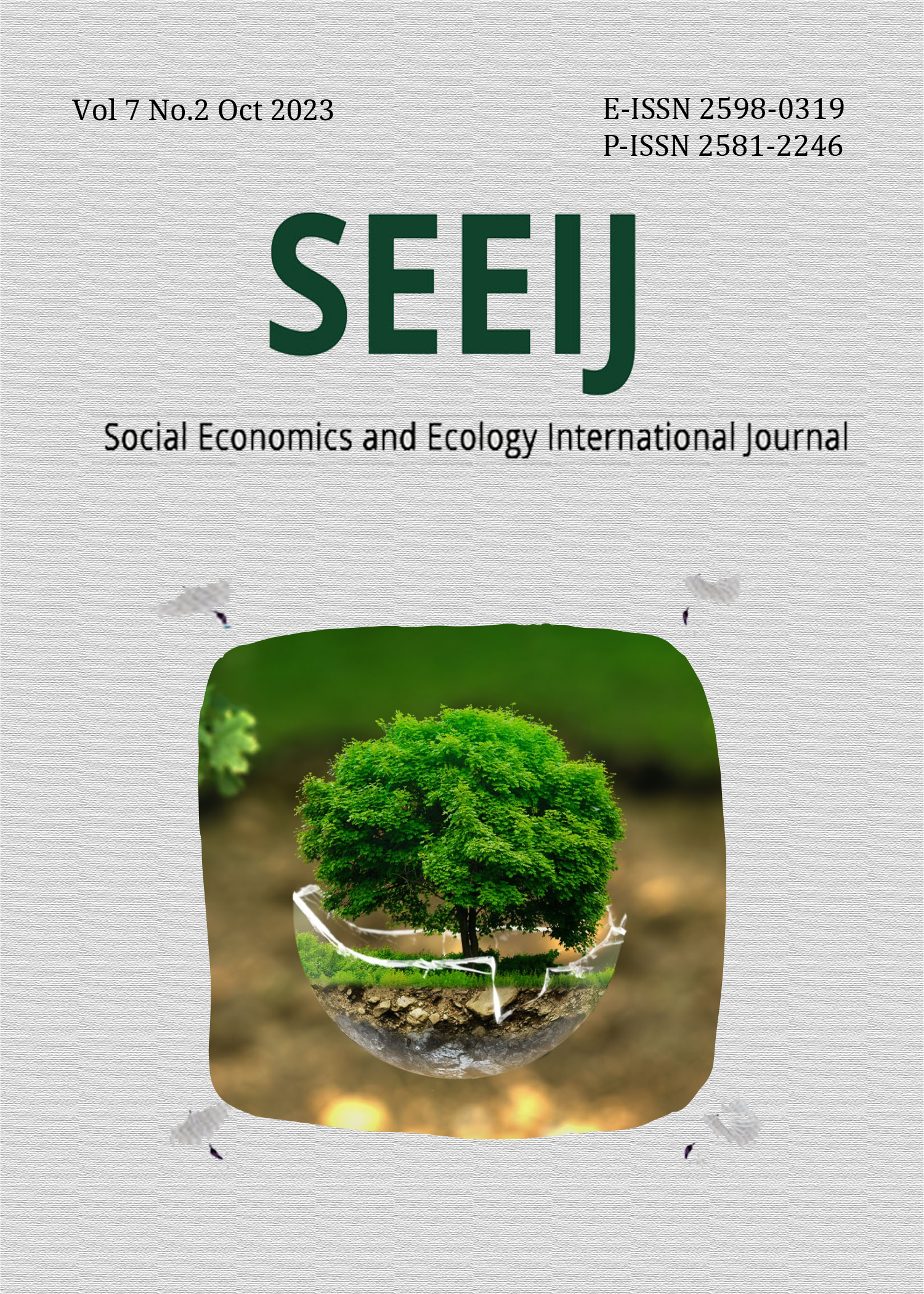The EFFECT OF SOCIAL MEDIA MARKETING ON PURCHASE INTENTIONS WITH BRAND AWARENESS AND PERCEIVED QUALITY AS INTERVENING VARIABLES AT ASTON BELLEVUE RADIO DALAM HOTEL IN JAKARTA
DOI:
https://doi.org/10.21512/seeij.v7i2.9799Keywords:
Social Media Marketing, Purchase Intention, Brand Awareness, Perceived Quality, Intervening VariablesAbstract
Social media plays a role in adding value to the attractiveness of two-way communication between companies and their consumers so as to increase consumer closeness to certain brands or brands. The ASTON Bellevue Radio Dalam hotel uses social media Facebook and Instagram as a marketing tool to introduce the ASTON Bellevue Radio Dalam brand to the public. At the beginning of the establishment of the ASTON Bellevue Radio Dalam hotel, the use of social media was still not actively used. In addition, at the beginning of its establishment, the ASTON Bellevue Radio Dalam hotel was also affected by the Covid-19 pandemic, resulting in a significant decrease in occupancy rates. Hotel ASTON Bellevue Radio Dalam is pursuing various strategies including increasing the amount of social media marketing activity to market and promote Hotel ASTON Bellevue Radio Dalam. The use of social media marketing also allows consumers to have an image and perception of the good quality of the ASTON Bellevue Radio Dalam hotel. The purpose of this study was to analyze social media marketing on purchase intention with brand awareness and perceived quality as intervening variables at the ASTON Bellevue Radio Dalam hotel, Jakarta.
According to the research that has been done, it is known that social media marketing directly has a significant influence on brand awareness, perceived quality, and purchase intention. In this study it can also be seen that brand awareness directly has a significant effect on purchase intention and perceived quality directly has a significant effect on purchase intention. However, on the results of testing the direct effect of the relationship between variables, it is known that the results of brand awareness have no significant effect on perceived quality. In testing the indirect effect, brand awareness as a mediating variable indirectly has a significant effect and has a relationship between social media marketing and purchase intention. In addition, it is also known that perceived quality as a mediating variable indirectly has a significant effect and has a relationship between social media marketing and purchase intention.
References
Aaker, D. A. (1991). Managing Brand Equity. The Free Press.
Aaker, D. A. (1997). Manajemen Ekuitas Merek : Memanfaatkan Nilai Dari Suatu Merek. Mitra Utama.
Assael, H. (1995). Consumer Behavior and Marketing Action (5th ed.). South-Western College Pub.
Ferdinand, A. (2002). Pengembangan Minat Beli Merek Ekstensi. Badan Penerbit Universitas Diponegoro (2002).
Hennig-Thurau, T., Gwinner, K. P., Walsh, G., & Gremler, D. D. (2004). Electronic word-of-mouth via consumer-opinion platforms: What motivates consumers to articulate themselves on the Internet? Journal of Interactive Marketing, 18(1), 38–52. https://doi.org/10.1002/dir.10073
Kaplan, A. M., & Haenlein, M. (2010). Users of the world, unite! The challenges and opportunities of Social Media. Business Horizons, 53(1), 59–68. https://doi.org/10.1016/j.bushor.2009.09.003
Kim, Angella J, & Ko, E. (2012). Do social media marketing activities enhance customer
equity ? An empirical study of luxury fashion brand ☆. Journal of Business Research, 65(10), 1480–1486. https://doi.org/10.1016/j.jbusres.2011.10.014
Kim, Angella Jiyoung, Ko, E., Kim, A. J., & Ko, E. (2012). Impacts of Luxury Fashion Brand ’ s Social Media Marketing on Customer Relationship and Purchase Intention Impacts of Luxury Fashion Brand ’ s Social Media Marketing on Customer Relationship and Purchase Intention. 2685. https://doi.org/10.1080/20932685.2010.10593068
Knoll, J. (2016). Advertising in social media: A review of empirical evidence. International Journal of Advertising, 35(2), 266–300. https://doi.org/10.1080/02650487.2015.1021898
Netemeyer, R. G., Krishnan, B., Pullig, C., Wang, G., Yagci, M., Dean, D., Ricks, J., & Wirth, F. (2004). Developing and validating measures of facets of customer-based brand equity. Journal of Business Research, 57(2), 209–224. https://doi.org/10.1016/S0148-2963(01)00303-4
Vukasovič, T. (2013). Journal of Media and Communication Studies Building successful brand
(1), 73–85. http://www.irjbs.com/index.php/jurnalirjbs/article/view/98
wu, P. C. s., & Wang, Y. C. (2011). The influences of electronic word-of-mouth message appeal and message source credibility on brand attitude. Asia Pacific Journal of Marketing
Downloads
Published
How to Cite
Issue
Section
License
Copyright (c) 2023 Puti Minang Anjarani

This work is licensed under a Creative Commons Attribution-NonCommercial 4.0 International License.
The Authors submitting a manuscript do so on the understanding that if accepted for publication, copyright of the article shall be assigned to SEEIJ Community Empowerment (CE) Bina Nusantara University as publisher of the journal.
Copyright encompasses exclusive rights to reproduce and deliver the article in all form and media, including reprints, photographs, microfilms and any other similar reproductions, as well as translations. The reproduction of any part of this journal, its storage in databases and its transmission by any form or media, such as electronic, electrostatic and mechanical copies, photocopies, recordings, magnetic media, etc., will be allowed only with a written permission from SEEIJ Community Empwerment (CE) Bina Nusantara University.
SEEIJ, the Editors and the reviewer make every effort to ensure that no wrong or misleading data, opinions or statements be published in the journal. In any way, the contents of the articles and advertisements published in the SEEIJ are sole and exclusive responsibility of their respective authors and advertisers.

This work is licensed under a Creative Commons Attribution-NonCommercial 4.0 International License.









